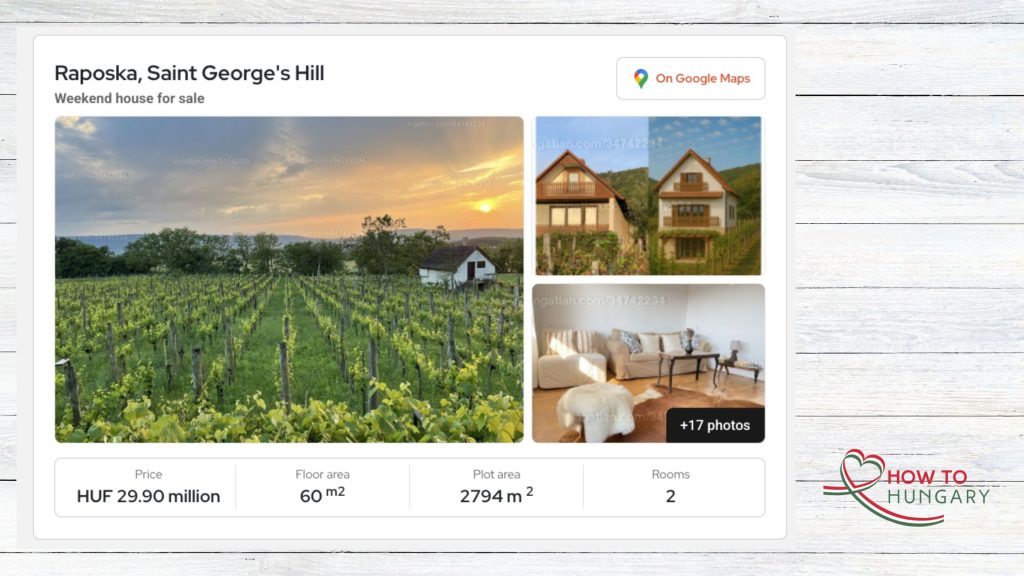You know the question. I’ve been asked it at dinner parties, in DMs, and even on Tiktok: “Are foreign buyers in Hungary still snapping up real estate in 2025?”
The short answer? Absolutely – but the full picture is far more interesting.
Let’s unpack the longer version.
The 2025 Foreign Buyer Boom (And Why It’s Not Just a Post-Pandemic Fluke)
According to the Hungarian Central Statistical Office (KSH), 2024 saw the highest number of foreign property buyers in Hungary since 2008. And if Q1 of 2025 is anything to go by, we’re on track to match or even surpass those numbers this year.
That’s right—despite new property legislation debates, EU scrutiny, and a mixed economic forecast, foreigners are still very much interested in owning a little slice of Hungary. And no, it’s not all investors looking for the next Airbnb cash cow.
In fact, the surge in buyers has been so strong that Budapest Business Journal dubbed it a “15-year high,” citing nearly 9,000 transactions in 2024 involving foreign nationals, with a significant uptick from non-EU countries, particularly China, Russia, Israel, and Turkey.
So, who’s actually buying—and what are they buying?
Meet the Foreign Property Owners
1. Germans & Austrians:
Let’s start with the classics. Germans and Austrians continue to dominate the Lake Balaton market, particularly in the western and northern shores. Think renovated cottages in Badacsony, vineyard plots near Keszthely, or tidy summer homes around Balatongyörök. Some are retirees. Some are second-home romantics. All are savvy.
2. Chinese Buyers on the Rise:
Here’s the twist: Chinese nationals are now among the fastest-growing foreign buyer groups in Hungary. Many are targeting central Budapest—Districts V through IX—for residential or mixed-use properties. According to Daily News Hungary, their presence in the Hungarian real estate scene has officially returned to pre-pandemic levels.
3. Russians, Israelis, and Turks:
Yes, even amid shifting geopolitics. Buyers from these countries have been particularly active in both Budapest and the countryside, often seeking large family homes or multi-unit buildings for renovation. Some are investors, but others are here to live—at least part-time.
4. The Anglos, the Dutch, and the Belgians:
We still show up – especially in the countryside. I can’t tell you how many messages I get (emails, DMs, even the occasional TikTok comment) that begin with: “We’re thinking of buying a little place near Lake Balaton…” From Canadians (like me) to Brits and Americans, creative professionals, remote workers, and semi-retirees are all drawn to Hungary’s mix of affordability, scenery, and slower pace. But we’re not the only ones. Dutch and Belgian buyers have quietly built up a steady presence over the years, particularly around western Hungary—in spa towns like Hévíz, villages near Keszthely, and beyond. Their properties range from tidy cottages to vineyard plots with big-sky views. And yes, I fully understand the irony of that last sentence – I wrote most of this article from my winehouse in the Tapolca basin.
What Are Foreign Buyers in Hungary Buying in 2025?
You might imagine every foreign buyer is bidding up luxury apartments in downtown Pest or gobbling up entire hillsides of vineyard land. But the reality is far more nuanced (and often more modest).
Here’s a snapshot of what people are actually buying:
- Budapest Apartments:
Most foreign buyers in 2025 are still heading for the capital—especially Districts VI through IX. These areas remain popular for their central location, historic charm, and investment potential. The typical targets? 40–80 sqm renovated flats, often purchased as long-term rentals or for family members studying or working in Hungary. -
Countryside & Secondary Cities:
Outside the capital, foreign buyers continue to show interest in family homes in Veszprém, Zala, and Somogy counties—especially those priced between €50K and €150K. These homes often need renovation, but their appeal lies in lifestyle: nature, thermal spas, and quiet villages. Spa towns like Hévíz and cities like Pécs also attract attention from buyers looking beyond Budapest. -
Press Houses & Vineyard Plots:
While niche, demand for vineyard cottages and press houses—particularly in the Balaton Highlands—remains steady. Prices for habitable properties have climbed, with most now starting at €50K+. These are rarely investment properties; they’re lifestyle purchases for buyers chasing sunsets and cellar dreams. -
Multi-unit Buildings: A small but impactful group of foreign buyers is investing in multi-unit buildings – especially in cities like Pécs, Debrecen, and Budapest’s outer districts.

Reality Check: This press house on Szent György Hill in Raposka is listed at HUF 29.9 million (approx. €76,000). It’s charming and well-located – but still needs renovation. Liveable doesn’t mean turnkey.
📸 Screenshot from Ingatlan.com, listing ID 34742234
But What About the Paperwork?
If you’re a non-EU buyer, you’ll need to obtain a property acquisition permit, a process that typically takes 30–60 days. Hungarian lawyers handle the legwork, and the cost is usually bundled into your legal fees. In Budapest or large cities, it’s almost a rubber stamp. But in smaller towns or sensitive rural areas, you may run into local scrutiny or longer wait times.
Recent policy changes – including the 2025 “Community Identity” property law—have raised questions about whether restrictions will increase. But for now, the rules remain steady for most buyers.
And just a reminder: you do not need to be a resident to buy property in Hungary. Many holiday homeowners visit just a few times per year, maintaining their properties via local friends or property managers.
Why Hungary? (And Why Still?)
Let’s be honest. If you’re reading this, you probably already know the answer. It’s no surprise that foreign buyers in Hungary keep coming.
Affordability. Safety. Culture. Location. Hungary offers a lifestyle that still feels untouched by the hyper-commercialisation seen in parts of Spain, Portugal, or even Croatia. You can buy a two-bedroom flat in Budapest for the price of a garden shed in Surrey. Or a countryside cottage for less than the cost of a new Tesla. (Not the fancy one—just the base model.)
Add in the Schengen benefits, historic towns, hiking trails, wine regions, and thermal baths, and it’s no surprise foreign interest remains strong—even with a few bureaucratic hurdles thrown in.
A Note on Neighbours (And Why It Matters)
One of the lesser-talked-about trends of 2025 is the quiet tension in smaller communities about the rise in foreign ownership. Some locals worry about empty houses. Others about rising prices or cultural erosion. And while most foreign buyers I meet are respectful, friendly, and genuinely want to integrate, the conversation around who owns what—and why—is becoming louder in political circles.
If you’re buying, my advice? Be a good neighbour. Introduce yourself. Learn a few Hungarian phrases. Buy from the local baker. Wave at tractors. You don’t need to become the mayor of your village – but blending in matters, especially as new laws seek to give communities more say in property transactions.
A Few Notes Before You Sign the Deed
So, how many foreigners are buying property in Hungary in 2025? Thousands. What are they buying? Everything from tiny flats to vineyard estates. Why? Because Hungary is still one of the few places in Europe where real estate dreams are (relatively) affordable.
But as demand grows and local voices grow louder, the future may bring tighter rules—or at least tougher questions. For now, though, the door is still open.
If you’re thinking of joining this quietly growing club of international homeowners, my ebook HOW TO HUNGARY: Budapest & Beyond is packed with insider advice, expert tips, and practical checklists to guide you every step of the way.
You can grab your copy here and feel a bit more confident before making that big move.
Because buying in Hungary? It’s not just about bricks and beams. It’s about belonging.
References & Resources
-
Hungarian Central Statistical Office (KSH) – Foreign Real Estate Purchases (2024–2025)
Official housing statistics from KSH, including foreign property ownership trends. -
Budapest Business Journal – Number of Foreign Real Estate Buyers in Hungary Hits 15-Year High
A breakdown of the 2024 foreign property boom and which nationalities are buying what. -
Daily News Hungary – Non-EU Citizens Return to Hungary’s Real Estate Market
Insight into how non-EU demand has bounced back and what kinds of homes are popular.

Anikó Woods is a Canadian-Hungarian writer, technology specialist, and digital strategist who swapped Toronto traffic for Hungarian bureaucracy. She’s the creator of HOW TO HUNGARY: Budapest & Beyond. Since moving to Hungary in 2017, she’s been deep in the paperwork trenches – fact-checking, interviewing experts, and helping others make sense of the madness. Her writing turns chaos into clarity, with a few laughs (and wine recommendations) along the way.

Thank you Aniko jó munka.. This is a very informative.